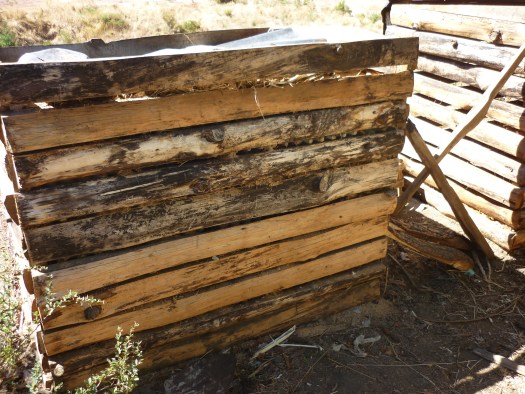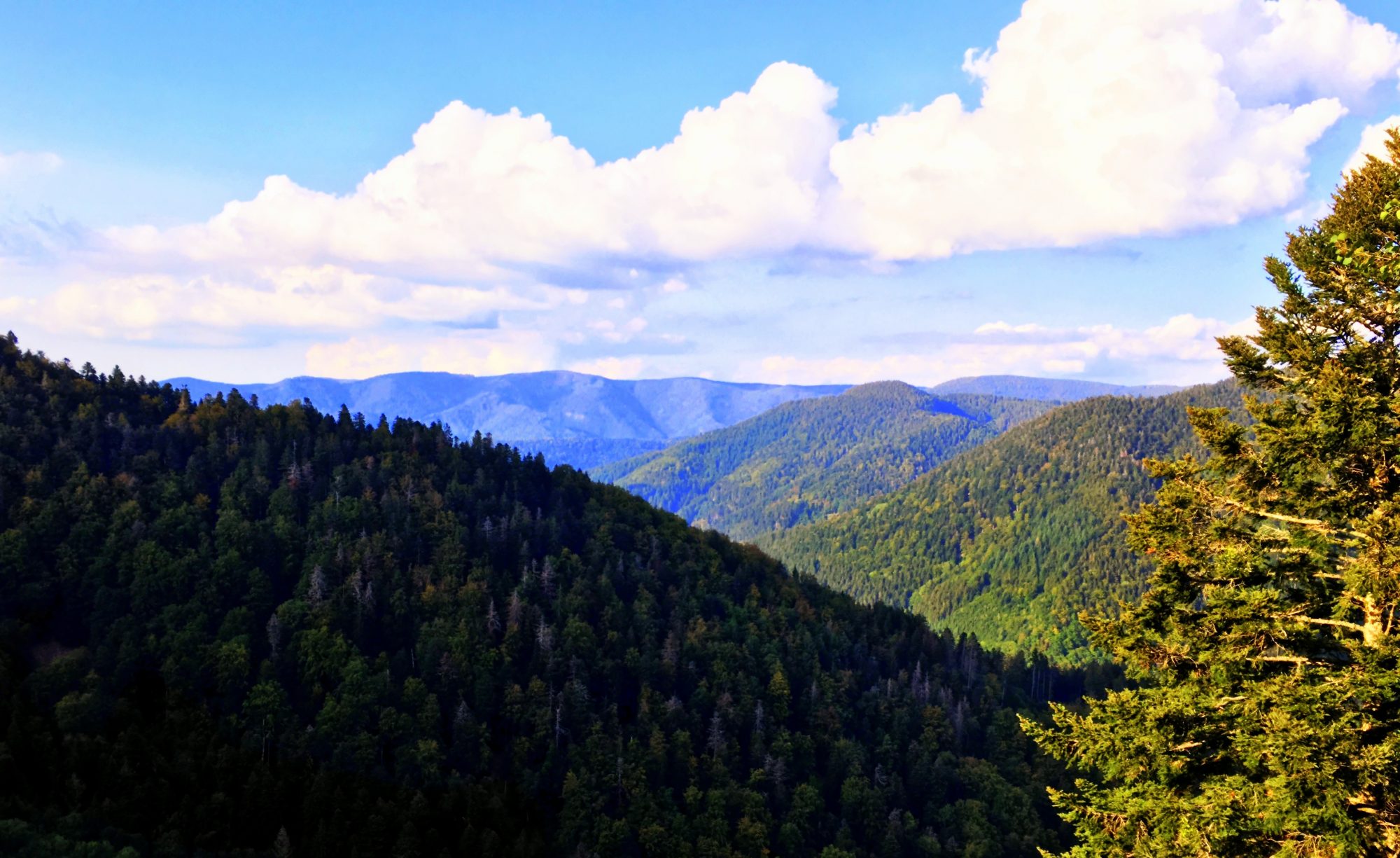Collaborative Work
The Museum of Natural History of Valparaíso (Interview in Spanish)
Siguiendo en la línea de un museo sostenible y de trabajo colaborativo, en esta oportunidad compartiremos una entrevista realizada a Alexander Vergara Castro, Diseñador en Permacultura, Ingeniero ambiental y Especialista en Medio Ambiente y Sostenibilidad, porteño pero hoy vive en Freiburg, Alemania. En esta nota conversaremos sobre la Permacultura que es una ciencia de diseño fuertemente basada en principios éticos, fundada en los años 70’s por los Australianos Bill Mollison, y David Holmgren.
Bill mollison una persona con mucha cercanía al medio ambiente, con basta experiencia en trabajo de campo y estudios en Biogeografía, veía como avanzaba la degradación ambiental producida en gran parte por la agroindustria, y a raíz de esto alrededor de los años 50’s se relata que empieza a tener la idea sobre soluciones más amigables con el medio ambiente, que posteriormente se harían llamar permacultura. Sin embargo, no fue hasta finales de los años 60’s y durante los años 70’s que se impulsa esta idea acompañado de su alumno David holmgren para concretar lo que sería la permacultura en sus inicios y como esta iría evolucionando. Es así como la permacultura se empieza a definir como un método de diseño sistémico que busca crear asentamientos humanos sostenibles, saludables y resilientes, basándose en principios éticos y de diseño. Busca satisfacer las reales necesidades para todos los seres humanos y al mismo tiempo la regeneración de los ecosistemas en los que ellos viven.
Es así como en respuesta a la crisis ambiental que estamos viviendo en Chile y en el mundo, las naciones unidas han creado 17 Objetivos de Desarrollo Sostenible (ODS) que nos invitan a crear un mundo más sostenible equilibrando los factores ambientales, sociales y económicos. Una alternativa dentro de este camino es comenzar a introducirse en la permacultura la cual se enfoca fuertemente en la producción de alimentos, abastecimiento de energía, diseño del paisaje, y la organización de estructuras sociales, integra energías renovables y uso sostenible de los recursos a nivel ecológico, económico y social.
La permacultura se basa en conjunto con la sabiduría de los pueblos originarios y los conocimientos científicos e ingenieriles, basados en la naturaleza y su observación, en su funcionamiento. Tiene una mirada integradora e interdisciplinaria, que utiliza diversas técnicas como: reciclaje y compostaje, huertas caseras y comunitarias, agricultura ecológica, bioconstrucción, prácticas de desarrollo personal, economía circular, bio- regionalismo, eco-aldeas, entre otras.
Respecto a su desarrollo en Chile, existen más de 120 proyectos distribuidos a lo largo de todo el territorio, en la entrevista conoceremos de algunas organizaciones vigentes en Valparaíso, los cuales generan actividades para educar y difundir sobre cómo practicar la separación de los residuos domiciliarios orgánicos, huertas y apicultura orgánica, producción propia de fertilizantes y cosméticos, construir casas de adobe, sistemas de baño seco, entre otras temáticas.
Podemos concluir que la permacultura nos invita a adoptar nuevos hábitos más coherentes y respetuosos con nuestro entorno, los invitamos a observar la naturaleza e imitarla en nuestro proceso, para vivir de manera sostenible, y aprender a potenciar nuestros recursos naturales.
A través de las redes sociales seguiremos compartiendo videos y notas para comenzar a iniciar un proyecto relacionado con la permacultura, datos por dónde empezar, cómo organizarte y planificarte para lograr ejecutar un proyecto que mejorará tu calidad de vida y entorno. Puedes dejarnos tu comentario y/o consultas por redes sociales, y durante la semana a través de las redes sociales estaremos compartiendo mayores detalles y respuestas.
Puedes también escribir a nuestro mail: mhnv@museoschile.gob.cl
Contacto Alexander Vergara Castro:
Mail: info@sustainable-lands.com
Instagram: @sustainable.lands
Para conocer su proyecto lo puedes encontrar en http://www.sustainable-lands.com
Dry Toilet Part I
What is a dry toilet?
What difference make with a normal toilet?
Check our journey with the dry toilet here
The science of the Incas already made genetic improvement of plants
Permaculture Weekend in Berlin!
Permaculture weekend in Berlin!
During one of the last weekends of summer we went to Berlin to visit our friends of 2000m2 Weltacker to make a permacultural weekend with two workshop. On saturday with a beautiful sunny day we shared knowledges of permaculture design with a great group really diverse, what is awesome because its interesting to exchange ideas and visions with such a team. Then on sunday we were working in our dreams with Dragon Dreaming and going through the history and techniques around dragon dreaming.
Happy to have had different ages in our workshops and happy to share more and more the way of how we can live more sustainable =)
Thanks to our friends of 2000m2 Weltacker (its a project we love) and see you soon!
Here some pictures from that weekend!





















Humanure
If you look in internet you may find thousands of different ways of making compost or how to treat your bio-waste. I think there is not a better or worst way to do it as you may know everything will depend on the place you are located and the environmental conditions around.
When we were in Patagonia this year ours friends from “El Bolson” a beautiful city in Argentinian Patagonia (please go and visit there!) were making HUMANURE, what is that? Some of you may think, well is a composting technic to transform your feces (shit, crap, poop) into a rich soil for you garden. So if you have a dry toilet this is one of the ways you can make compost out of it, then the question is, how it is? …. First in your compost dry toilet you will have a bucket like the yellow one in the pictures where everything will go… yes everything urine and feces (I’m gonna be elegant here jejjejeje) many people think that is not possible or should not be mixed but actually it just enrich the final compost and depending where you are you may work with the humidity but more than this everything is fine. As a normal dry toilet after you use it you have to cover it with some sawdust to neutralize odor and to make a balance with nitrogen (N) and carbon (C) in the compost. You can also add some ashes that will bring some minerals and is really good for odors too. After the bucket is full you take to a compartment like a box (1×1 mt3 is good enough) and leave it on the middle so you start making a pile from the middle up. Every time you bring your materials (that sounds really nice for feces and urine jejjejjeje) you must leave it on the middle, make a small hole first and then deposit there because the middle is where the compost is more active (for this reason hotter) so the new material will process faster. Finally you cover it again with more sawdust and you can also wash the bucket and throw the water above.
Couple of months later you will see how everything will transform into a beautiful and super rich soil for your garden. Some people is afraid of making humanure because of the materials you use but give a try and you will not regret 😉
Have a beautiful time and until the next sun!
Big hug!














Permaculture Berlin Weekend
Hey everyone!
The last weekend of August we will be visiting Berlin again =)
We are really exciting about this weekend where we will be sharing knowledges about permaculture design and dragon dreaming.
Just send an email to sustainablelands.info@gmail.com to join us!
To have more information about the event visit our Facebook event:
Introduction to a Permaculture Design
https://www.facebook.com/events/700382153746435/

Making dreams come true with Dragon Dreaming
https://www.facebook.com/events/328478188036394/

Introduction to a Permaculture design in Valparaíso
Thank you everybody! We had a great time on saturday dicovering new ideas. As always is beautiful to see more people interested in Permaculture and how they can develop the new knowledges into their fields.
We are super happy and we hope you have a tool that you can use in your whole life.
A big hug and see you soon!
Sustainable Lands & Parque Quintil
Sustainable Lands
https://sustainable-lands.com/
Parque Quintil
Here we have some photos from the workshop. Enjoy it!













Magic forest
Many time you see how children are so much smart than adults, they have no limits in their imagination.
Let’s learn from them!
Check the story here!









